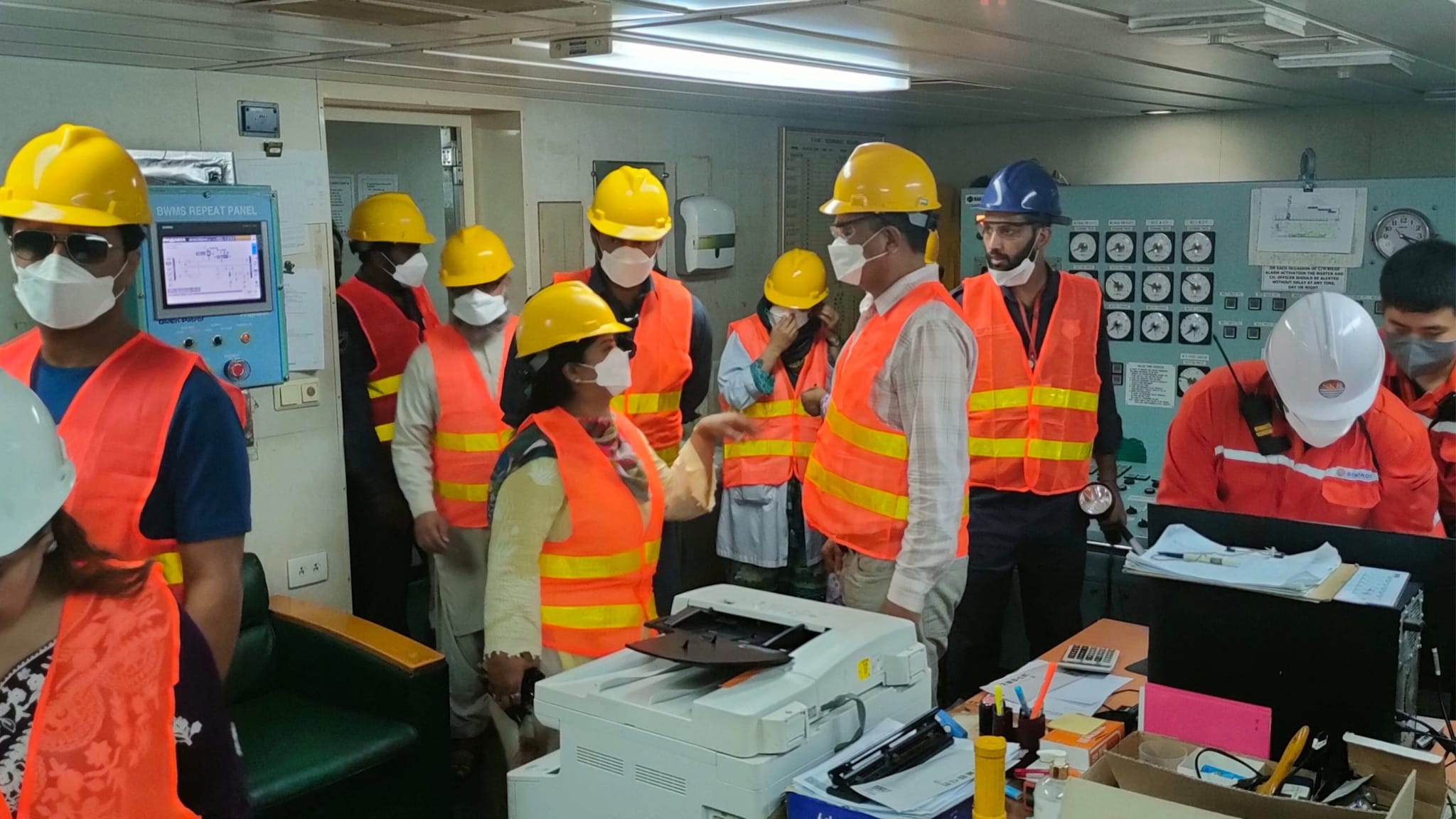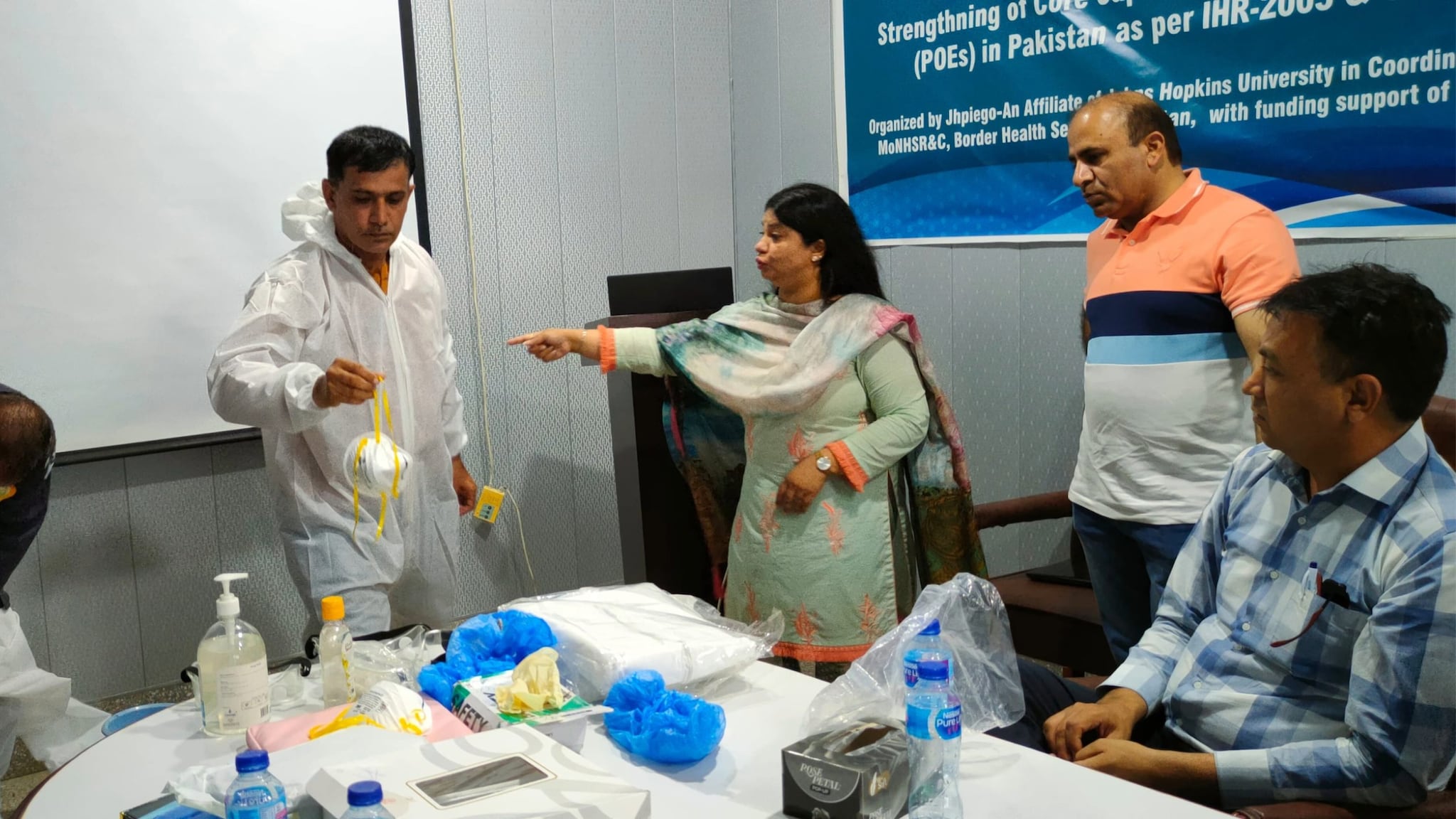At a glance
- Seaports require strict disease surveillance to prevent the transmission of diseases across borders.
- Yet neighboring communities, often diverse and marginalized, present challenges in health management as they may not be fully involved in health programs.
- Pakistan's Field Epidemiology and Laboratory Training Program addressed these issues by focusing on gender equity and capacity building at seaports, conducting workshops for better surveillance and inclusivity.
Disease surveillance challenges at seaports
Balancing Trade and Health Security

Seaports are important interfaces in the supply chain between sea and land transportation, and serve as vital hubs for trade, commerce, and international connectivity. However, these commercial hubs also can facilitate transmission of infectious diseases across borders. Therefore, disease surveillance is crucial at points of entry – a fact underscored during the COVID-19 pandemic – due to the potential for rapid disease spread and risks associated with potential trade restrictions. Unfortunately, areas near points of entry serve diverse communities that may live on the margins of society and not be fully engaged in public health programs. This presents unique challenges to health security and the prevention and management of disease outbreaks.
Building up the public health workforce at seaports

Dr. Nadia Noreen, MBBS, MPH, MSc Epidemiology, a graduate of the Pakistan Field Epidemiology and Laboratory Training Program (FELTP), shared that Pakistan's FELTP has made important strides in promoting gender equity. "As a woman in Pakistan where men occupy most leadership positions, working as the technical lead for Border Health Services, an attached Department of the National Ministry of Health in Pakistan, is remarkable progress in the direction of gender and health equity."
Through FELTP, Dr. Noreen has gained important knowledge, skills, and experience that have advanced her career and positioned her to integrate health equity metrics into her work at Pakistan's seaports.
Capacity building and human resource skill development is an effective component of ongoing health systems strengthening activities and results in improving a person's ability to perform their work more effectively and efficiently. In the evolving landscape of global health, where equitable access to healthcare resources remains a pressing concern, initiatives that focus on empowering diversity and promoting inclusivity can be transformative.
Conducting workforce capacity building initiatives at seaports is an important step toward effective implementation of International Health Regulations (IHR) and ensuring that public health measures include all populations. Also, ensuring diversity and equity in the implementation of IHR at seaports is essential to protect the health of both local and global populations, address health disparities and promote inclusivity.
FELTP training builds seaport capacity
The COVID-19 pandemic taught us many valuable lessons, including the importance of ensuring that all stakeholders involved in seaport operations possess the skills and knowledge to respond effectively to health crises. As the technical lead for all Points-of-Entry in Pakistan (i.e., seaports, airports, and ground crossings), Dr. Noreen used skills acquired through FELTP to promote the health of both local and global populations, address health disparities and promote inclusivity. The training was designed to be inclusive and equip seaport health personnel with the skills to manage an outbreak response at seaports and ship sanitation operations.
The training included a day of practical demonstrations of ship inspection and sanitation, aligned with IHR, showcased the fusion of classroom learning and in-the-field application. Attendees witnessed firsthand the intricacies of maintaining health and safety standards aboard vessels, reinforcing the critical importance of swift and precise actions.
Impact of diversity and inclusion
The TOT was piloted at seaports for the first time. The target audience included health care professionals and other professionals from diverse backgrounds and disciplines, acknowledging that a well-rounded response to health challenges demands perspectives from various walks of life.
By gathering representatives from different professional realms, this initiative fosters an environment where creativity, adaptability, and innovation can thrive. The insights and experiences of individuals from various backgrounds enrich discussions and lead to more comprehensive solutions.
Moving forward
As the global community faces unprecedented challenges due to emerging and re-emerging infections that threaten global health security, workforce capacity building initiatives are vital. Investing in diversity and equity within the realm of emergency response and preparedness at seaports bolsters our collective capacity to respond effectively to health crises and sets a powerful precedent for inclusivity in all facets of public health and epidemiology.
Dr. Noreen's leadership role, as a woman in a country predominantly led by men, and her visionary efforts to empower diversity and equity in epidemiology through seaport capacity building demonstrate how innovation and progress can be achieved by embracing inclusivity.
